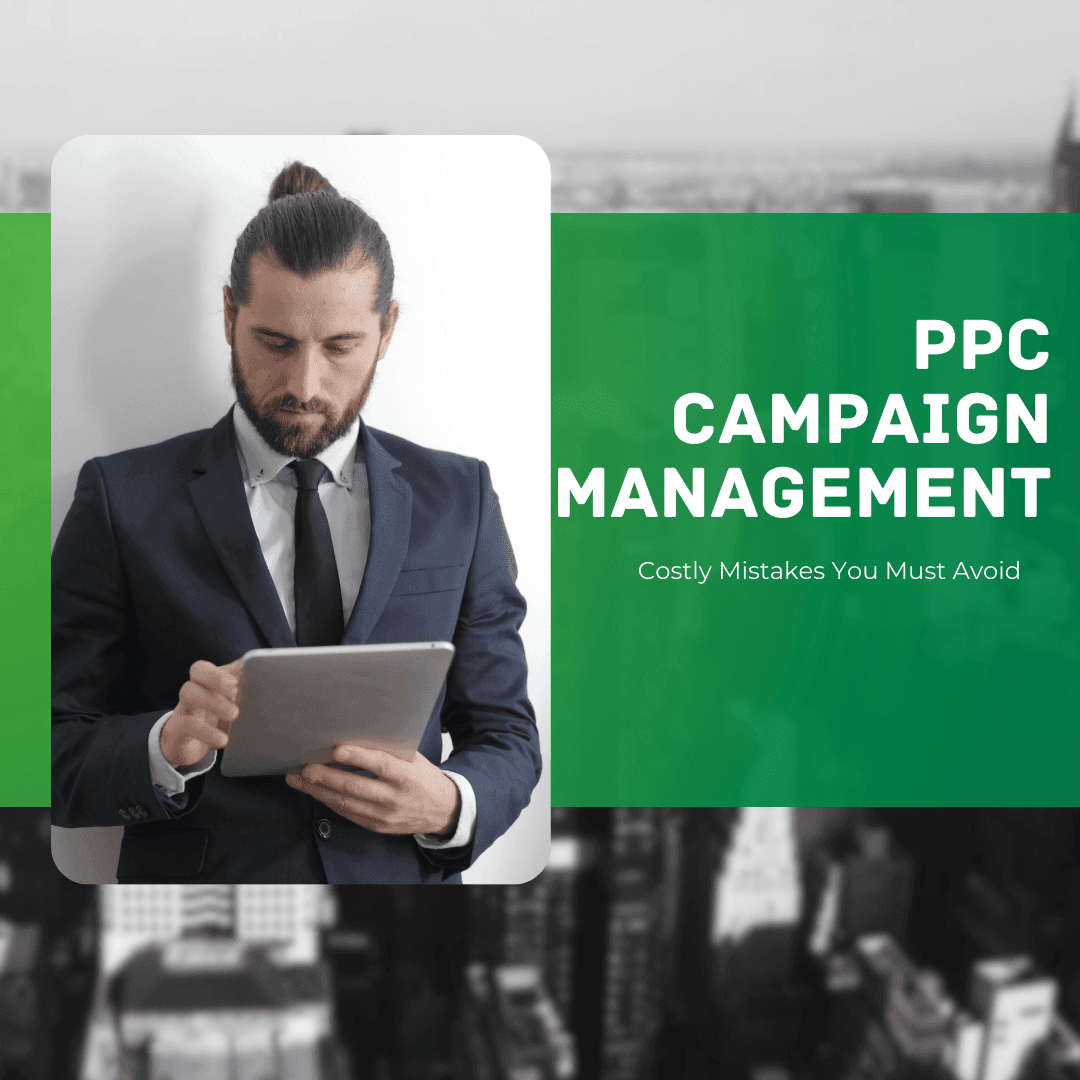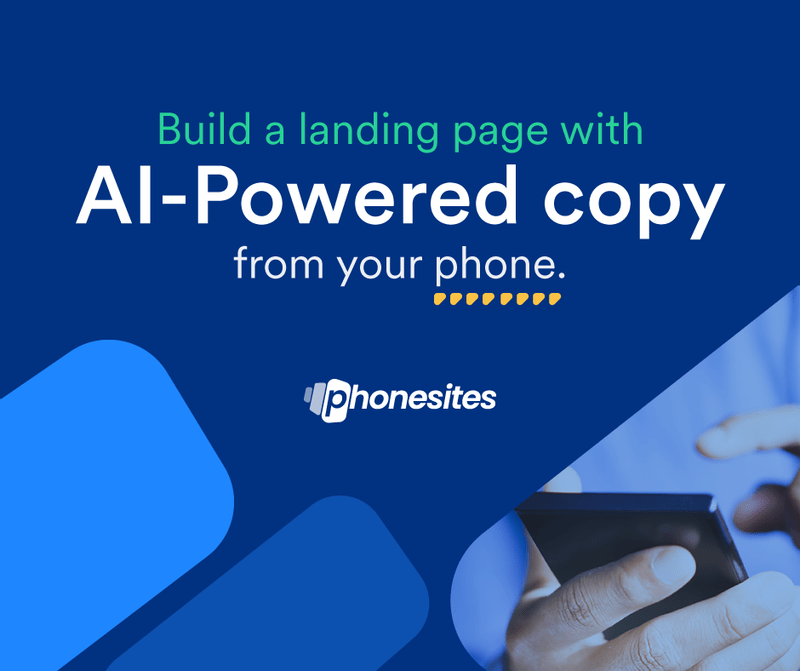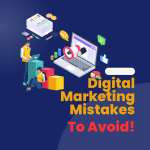
Pay-per-click (PPC) advertising is a powerful digital marketing strategy that can bring targeted traffic to your website and generate valuable leads. However, managing a successful PPC campaign requires careful planning, continuous monitoring, and strategic decision-making. In this article, we will delve into the world of PPC campaign management and highlight some of the most common and costly mistakes that you must avoid to maximize your campaign’s effectiveness.
Table of Contents
- Introduction
- Understanding PPC Campaign Management
- Choosing the Right Keywords
- Crafting Compelling Ad Copy
- Setting Up Landing Pages
- Effective Bid Management
- Ad Extensions for Better Performance
- Geo-Targeting and Audience Segmentation
- Mobile Optimization
- Quality Score Importance
- Monitoring and Analysis
- Common Costly Mistakes to Avoid
- Neglecting Negative Keywords
- Failing to Refine Keywords
- Ignoring Ad Copy A/B Testing
- Not Tracking Conversions
- Landing Page Discrepancies
- Overlooking Mobile Users
- Strategies for Success
- Continuous Keyword Research
- Compelling and Relevant Ad Copy
- Consistent Landing Page Experience
- Conclusion
- Frequently Asked Questions
PPC Campaign Optimization
PPC advertising is an essential tool for businesses to showcase their products or services to a targeted audience. When managed effectively, PPC campaigns can yield impressive results, driving high-quality traffic and boosting conversions.
Understanding PPC Campaign Management
At the heart of PPC campaign management lies the selection of the right keywords. These keywords determine when and where your ads will appear, ensuring that they reach potential customers when they search for related terms.
Choosing the Right Keywords
Keyword research is a meticulous process that involves identifying keywords relevant to your business. It’s crucial to strike a balance between high-competition keywords and long-tail keywords that can bring in more specific leads.
Crafting Compelling Ad Copy
Crafting compelling ad copy is a critical aspect of any successful PPC campaign. This process involves creating concise yet persuasive text that captures the attention of your target audience and entices them to take action. Here’s how to effectively craft compelling ad copy:
Know Your Audience: Understand your target audience’s pain points, needs, and desires. Your ad copy should address these directly, showing that you have a solution to their problems.
Highlight Benefits: Focus on the benefits of your product or service rather than just listing features. Explain how your offering can solve a specific problem or make the customer’s life better.
Use Strong Language: Utilize powerful and action-oriented language. Use words like “discover,” “get,” “transform,” and “achieve” to evoke emotions and prompt action.
Create a Sense of Urgency: Encourage immediate action by incorporating phrases like “limited time offer,” “act now,” or “don’t miss out.” This sense of urgency can drive users to click on your ad.
Include Keywords: Integrate relevant keywords into your ad copy. This not only enhances the ad’s relevance but also helps improve its Quality Score, leading to better ad placements and lower costs.
Be Concise: Space is limited in ad copy, so every word counts. Get to the point quickly and avoid unnecessary fluff.
Highlight Unique Selling Points: Differentiate yourself from competitors by emphasizing what sets your product or service apart. Whether it’s quality, pricing, or a unique feature, make it clear.
Include a Call-to-Action (CTA): A strong CTA prompts users to take the desired action. Use direct phrases like “Shop Now,” “Learn More,” or “Get Started” to guide users on what to do next.
Match Ad Copy to Landing Page: Ensure that the message in your ad copy aligns seamlessly with the content on the landing page that users will be directed to. Consistency enhances the user experience.
Test and Iterate: Don’t settle for a single version of ad copy. A/B testing different variations can help you identify which wording resonates best with your audience and leads to higher click-through rates.
Setting Up Landing Pages
Driving traffic to your website is only half the battle. The landing pages that visitors land on should be optimized for conversion. A clear call-to-action (CTA), relevant content, and easy navigation are key factors in turning clicks into leads.
Effective Bid Management
Bidding on keywords requires careful consideration. Set a budget that aligns with your goals and continuously monitor and adjust bids based on performance.
Ad Extensions for Better Performance
Ad extensions expand your ad’s visibility and provide additional information to users. Use site links, callouts, and structured snippets to enhance your ad’s relevance.
Geo-Targeting and Audience Segmentation
Geo-targeting allows you to display your ads in specific locations, ensuring that your message reaches the right people. Additionally, segmenting your audience based on demographics and behavior further enhances your campaign’s efficiency.
Mobile Optimization
With the increasing use of mobile devices, optimizing your ads and landing pages for mobile is essential. Ensure that your content is easily accessible and visually appealing on smaller screens.
Quality Score Importance
Search engines assign a quality score to your ads based on their relevance and performance. A higher quality score can lead to better ad placements and lower costs per click.
Monitoring and Analysis
Continuous monitoring of your campaign’s performance is crucial. Analyze metrics like click-through rates (CTR), conversion rates, and return on ad spend (ROAS) to identify areas for improvement.
Common Costly Mistakes to Avoid
Neglecting Negative Keywords
Not using negative keywords can lead to irrelevant clicks, wasting your budget. Exclude keywords that are not relevant to your business. Negative keywords help filter out irrelevant searches, ensuring your ads are displayed to the most relevant audience, ultimately improving your campaign’s efficiency.
Failing to Refine Keywords
Keyword trends change over time. Failing to update and refine your keyword list can result in outdated targeting.
Ignoring Ad Copy A/B Testing
A/B testing your ad copy helps you identify which messages resonate better with your audience, leading to higher CTRs and conversions. Writing a single ad and assuming it will perform optimally is a mistake. Continuously test different versions of ad copies to identify which resonates best with your audience and generate higher click-through rates.
Not Tracking Conversions
Without tracking conversions, you won’t know which keywords and ads are driving actual results, making optimization impossible.
Landing Page Discrepancies
Misalignment between your ad’s promise and the landing page’s content can confuse users and lead to high bounce rates. Even if your ad is perfectly crafted, a poorly optimized landing page can negate your efforts. Ensure your landing page is aligned with your ad’s message, has a clear call-to-action, and provides a seamless user experience.
Overlooking Mobile Users
A non-mobile-friendly landing page can deter potential customers from using mobile devices, impacting your campaign’s effectiveness. Neglecting mobile users can be a grave mistake. Ensure your landing pages are mobile-responsive and that your ads cater to the mobile audience’s unique needs.
Strategies for Success
Continuous Keyword Research
Regularly update your keyword list based on trending terms and user behavior to stay relevant.
Compelling and Relevant Ad Copy
Craft ad copies that directly address users’ needs and highlight your unique value proposition.
Consistent Landing Page Experience
Ensure that the user experience flows seamlessly from the ad to the landing page, keeping the message consistent.
In the fast-paced world of digital advertising, effective PPC campaign management is essential for driving results. By avoiding the common mistakes outlined in this article and following proven strategies for success, you can harness the power of PPC to achieve your business goals.
Frequently Asked Questions
What is PPC advertising? PPC advertising, or pay-per-click advertising, is a digital marketing model where advertisers pay a fee each time their ad is clicked, directing users to their website.
How do I choose the right keywords for my PPC campaign? Conduct thorough keyword research to identify relevant keywords with a balance between competition and specificity.
Why is mobile optimization important in PPC campaigns? With the rise of mobile device usage, optimizing for mobile ensures a seamless experience for users, increasing the chances of conversions.
What is a quality score, and why does it matter? Quality score is a metric used by search engines to measure the relevance and quality of your ads. A higher quality score can lead to better ad placement and lower costs.
How often should I monitor my PPC campaign? Regular monitoring is essential. Review key metrics weekly to identify trends and areas for improvement.









Leave a Comment
You must be logged in to post a comment